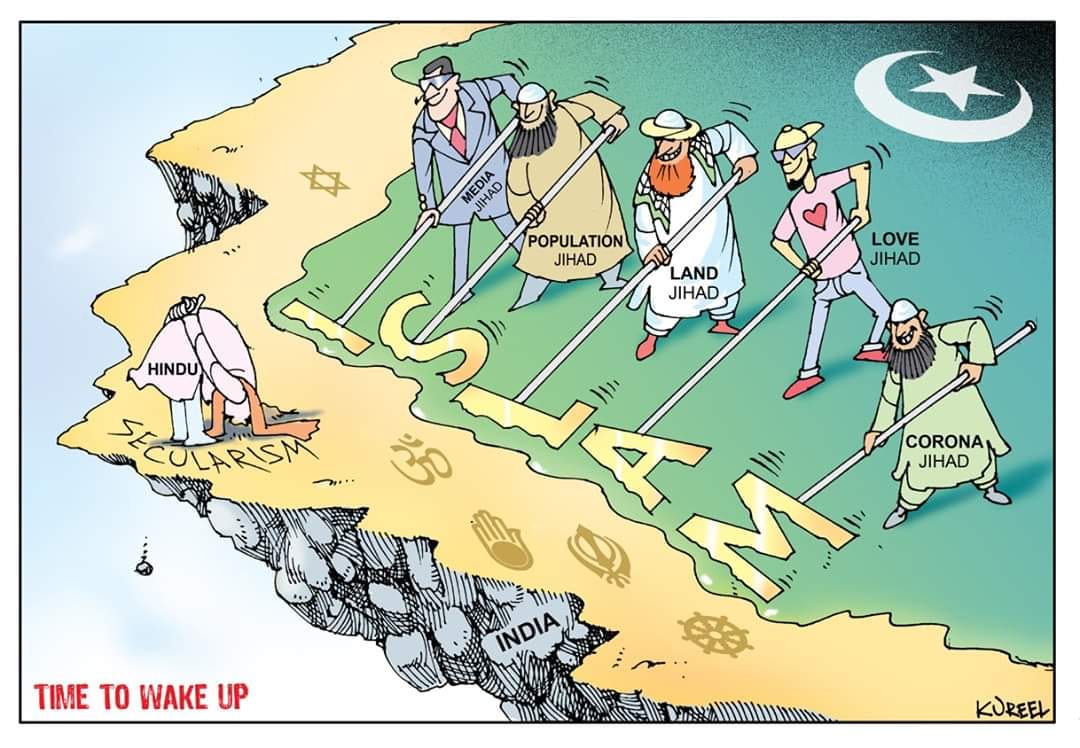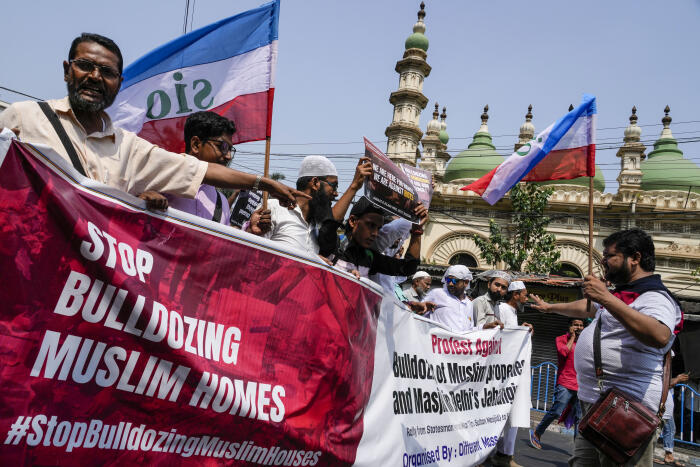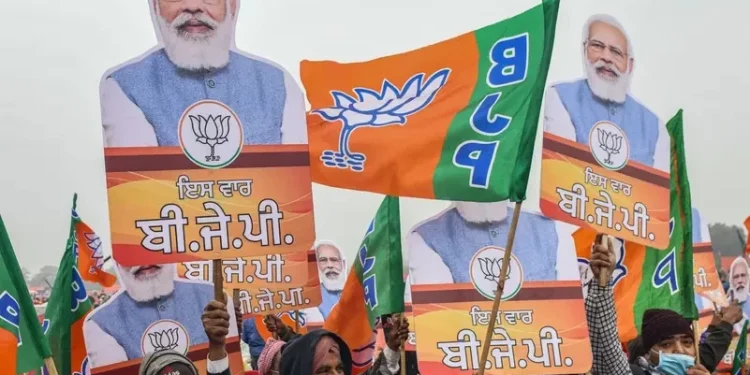In the era of post-truth politics, there is a constant struggle to construct and monopolize truth. As constructivists suggest, truth is a social construct that depends on historical experiences, culture, prevailing values and perceptions, and existing social, economic, and political conditions in a given society. The spectacular rise in media’s power and role in this post-truth era calls for a more profound understanding through theorization of the phenomenon. Media- controlled, used, and misused by corporate houses in alliance with the political establishment- is the greatest danger that democracy faces today. It is leading to the corporatization of democracy, under which people’s perceptions, voices, and reactions are all controlled and manipulated by the powerful media. The sudden surge in Islamophobia, xenophobia, and racism in the post-Cold War era need to be understood in this context.
Islamophobia is a global phenomenon. During the Cold War, the USA-led Western bloc had created a kind of “red scare” and projected communism/Marxism as the “red menace” or “red danger.” With the disintegration of the Soviet Union and the collapse of Communism in the 1990s, there has been a surge in the global rise of Islamophobia. The USA-led Western bloc religiously followed Huntington’s advice: “There can be no true friends without true enemies.” After the collapse of communism, the USA and its allies needed a new enemy. The propaganda industry in the USA and other European countries maintained during the Cold War to create a red scare was directed against Islam and Muslims. Red danger was replaced with “green danger,” and terms like Islamic militancy, Islamic terrorism, and Islamic fundamentalism were frequently used against a newly discovered enemy. Islamophobia is the outcome of this propaganda.
India, which is the largest electoral democracy in the world, is one of the epicenters of Islamophobia and hatred against Muslims today.
India, which is the largest electoral democracy in the world, is one of the epicenters of Islamophobia and hatred against Muslims today. The rightist forces needed an internal enemy to create anxiety and fear to mobilize the majority community and achieve their political and other goals. Not only is the abstract truth socially constructed, but enemies and friends are also socially constructed. Due to historical reasons, Muslims became the much-needed enemy, and the right wing in India used global Islamophobia to create anxiety and fear in the minds of Hindus who have been living peacefully with Muslims in a secular democracy.
Indian Media Environment
The media environment in India is Islamophobic, toxic, and hateful against Muslims. Newsrooms in India are dominated by the upper caste Hindus and infected by Islamophobia. Marginalized communities like Dalits, former Sudras, and minorities are inadequately represented in the mainstream media.
Muslims are the largest minority in India, constituting 14.2% of the country’s population. India is a secular country, and the Constitution provides equal rights to all citizens without any discrimination based on religion, ethnicity, sex, or place of birth. However, in practice, Muslims have been subjected to institutional discrimination, social exclusion, persecution, and violence since the independence of the country. With the rise of the right-wing political party Bharatiya Janata Party (BJP), the persecution of Muslims has increased manifold.
The Politics of Hate
The current political dispensation headed by Prime Minister Modi is known for its anti-Muslim rhetoric. The BJP leaders, including Prime Minister Modi, are accused of delivering hate speeches. The mainstream media, with few notable exceptions, widely reports it, making the controversial anti-Muslim speeches the topic of primetime discussions. At the time of the elections, the frequency of Islamophobic speeches increases manifold. In the electoral campaign for the 2024 national elections, Prime Minister Modi himself declared Muslims as “infiltrators” and lamented that they were responsible for the population explosion.
The Indian media environment is not only Islamophobic, but it is also toxically hateful against Muslims.
Ideology of Hate
Living in the era of post-truth itself is dangerous for non-dominant groups in any society. The Indian media environment is not only Islamophobic, but it is also toxically hateful against Muslims. It is an ideologically committed media that fosters hate against Muslims to serve the cause of the ruling dispensation. It must be noted that Rashtriya Swayamsevak Sangh (RSS), an affiliate of the ruling BJP, was headed by M.S. Golwalkar from 1940-1973. Glowalkar was an Islamophobic scholar who declared Muslims as an “internal threat.” It seems that the ruling BJP has not come out of the hangover created by Golwalkar, and its leaders still consider Muslims as a threat and therefore, they spew venom against Muslims.
Distorting and Suffixing Jihad
The Islamic concept of jihad and its distorted meaning is often mentioned in mainstream media to create anxiety and fear in the majority. If Muslims buy land in some prime areas or localities inhabited largely by Hindus, the media will call it “bhoomi (land) jihad,” if a Muslim boy falls in love with a Hindu girl, it will be projected as “love jihad,” or if Muslim youth qualify the national administrative services exam, it will be termed as “Indian Administrative Services (IAS) jihad.”
Muslim males are often projected as sexually obsessive and virulent, while Muslim women as “the most fertile” females breeding children. Muslims are blamed for the demographic explosion in India, and it is often argued that Muslims produce more children with a design as they want to outnumber Hindus. Thus, it becomes “population jihad.” Social media crosses all limits of Islamophobia, and the economic boycott of Muslims, calling for the genocide of Muslims, sexually assaulting Muslim women, and sending them to Pakistan are very common on social media platforms.

The cartoon, drawn by the anti-Islam cartoonist Manoj Kureel, depicts “different types” of jihad.
COVID-19 was also used by the mainstream media as well as social media to create hate against Muslims. A narrative was constructed that Muslims are deliberately spreading Coronavirus in the country and waging “the Corona jihad.” During the Corona pandemic, Muslims were mainly targeted by the hateful media, and they were projected as “Corona super-spreaders.” Religious denominations of Muslims and places of worship were projected as Corona spreaders.
Predatory Media
Since Modi came to power as Prime Minister, demolishing Muslim houses and places of religious worship on narrow technical grounds has become a common feature. The Indian media celebrate such demolitions and proudly call it “bulldozer justice.” The predatory media also celebrate and legitimize extra-judicial killings of alleged criminals and terrorists if they happen to be Muslims. In some cases, it becomes the supari media by pinpointing who should be the next to be neutralized. It is essential to mention that three Muslim members of Parliament with alleged criminal backgrounds have died in mysterious circumstances or were killed in police or judicial custody.

Indian Muslims protest against Hindu nationalists’ policies of destruction, 2022. (Bikas Dap/AP)
This escalating hatred has far-reaching consequences, threatening not only the safety and well-being of the Muslim community but also the very fabric of India’s democracy.
The Impending Danger
The overall Islamophobic political, social, and media environment increases the vulnerabilities of Muslims in India. Collective violence in the form of communal riots and mob lynching is becoming the order of the day. The U.S. Commission on International Religious Freedom (USCIRF) has expressed concern over the prevalence of anti-Muslim hate in India. The Genocide Watch has been issuing warnings of genocide of Muslims in India. This escalating hatred has far-reaching consequences, threatening not only the safety and well-being of the Muslim community but also the very fabric of India’s democracy. The pervasive atmosphere of fear and suspicion undermines social cohesion, leading to increased segregation and the breakdown of inter-communal relationships. As trust erodes, the potential for conflict and violence grows, destabilizing the entire society. If left unchecked, this dangerous trajectory could lead to severe crises and long-term socio-political instability in the country.
Conclusion
The rise of Islamophobia in India’s media and political landscape is a deeply troubling phenomenon that undermines the country’s democratic principles and secular ethos. The media, often in collusion with political forces, has played a significant role in constructing and perpetuating a narrative of fear and hatred against Muslims. This has led to increased discrimination, violence, and social exclusion of the Muslim community. The manipulation of truth and the creation of enemies for political gain has not only polarized society but also eroded the very fabric of India’s diverse and pluralistic identity. The dangerous rhetoric and actions stemming from Islamophobia pose a serious threat to social harmony and justice. To counter this, it is imperative to promote media literacy, encourage responsible journalism, and uphold the principles of equality and secularism enshrined in the Indian Constitution. Only through concerted efforts to challenge and dismantle these prejudiced narratives can India move towards a more inclusive and just society where all citizens, regardless of their religion, can live with dignity and respect.












































